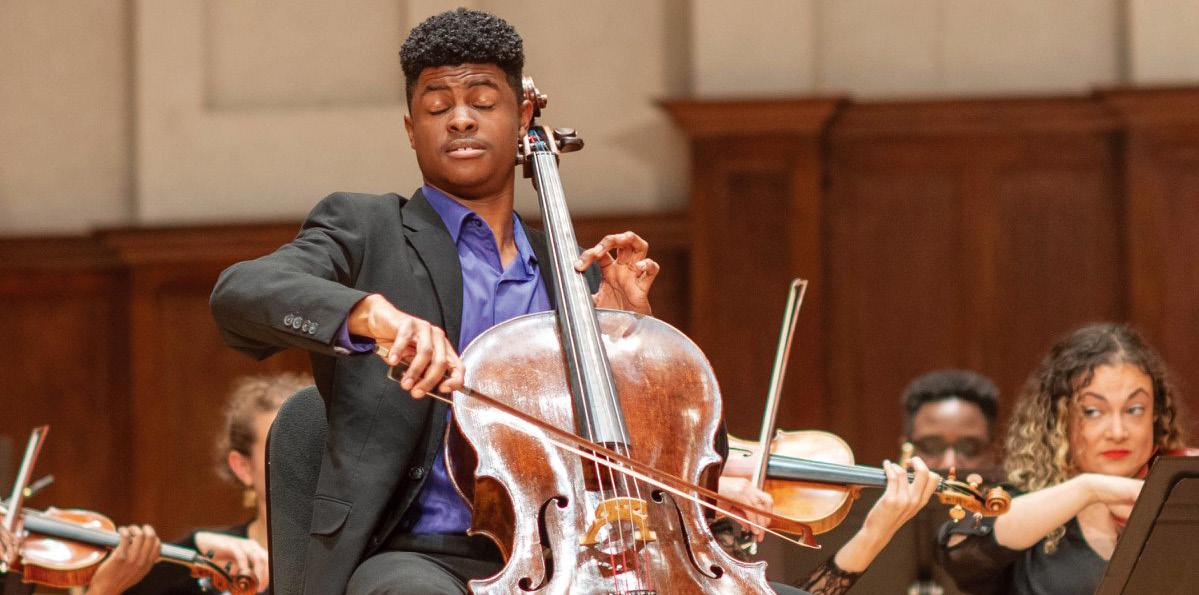Research Studies
Coping with COVID
The League of American Orchestras is helping orchestras by researching and reporting how orchestras—and their audiences—are dealing with the pandemic.
CULTURE + COMMUNITY
IN A TIME OF TRANSFORMATION A SPECIAL EDITION OF
Key Findings From Wave 2 | November 23, 2021 ©2020 Culture Track
T
he global pandemic has upended the status quo for orchestras and their audiences. Orchestras are improvising in real time as they adapt to ensure the safety of musicians, staff, and audiences with temporary shutdowns, postponements, shifts to digital music-making and chamber-scale concerts, and performances in the great outdoors. As COVID-19 evolved from its first iteration to the Delta and now the Omicron variants, new ways to keep the music playing while keeping everyone healthy—most recently, vaccine and mask requirements—are being tried and tested. Further, the national reckoning with racial injustice that emerged in the
wake of the murder of George Floyd and too many others mean that the classical music field is now examining its own longstanding lack of forward movement on equity, diversity, and inclusion. How are orchestras managing, experimenting, innovating? In the face of the ongoing pandemic, what do audiences expect of orchestras? What do orchestras expect of themselves? The League of American Orchestras is helping orchestras understand where they stand—and where they might head—with multiple surveys, studies, and research projects. Working with expert research partners, the League is asking orchestras and audiences, essentially, how and what they are doing, and then publishing the data after rigorous analysis. Recent studies
More than half of classical arts attenders in one survey say they hope that arts or culture organizations will change after the pandemic to become more relevant to more people. 34
WINTER 2022










